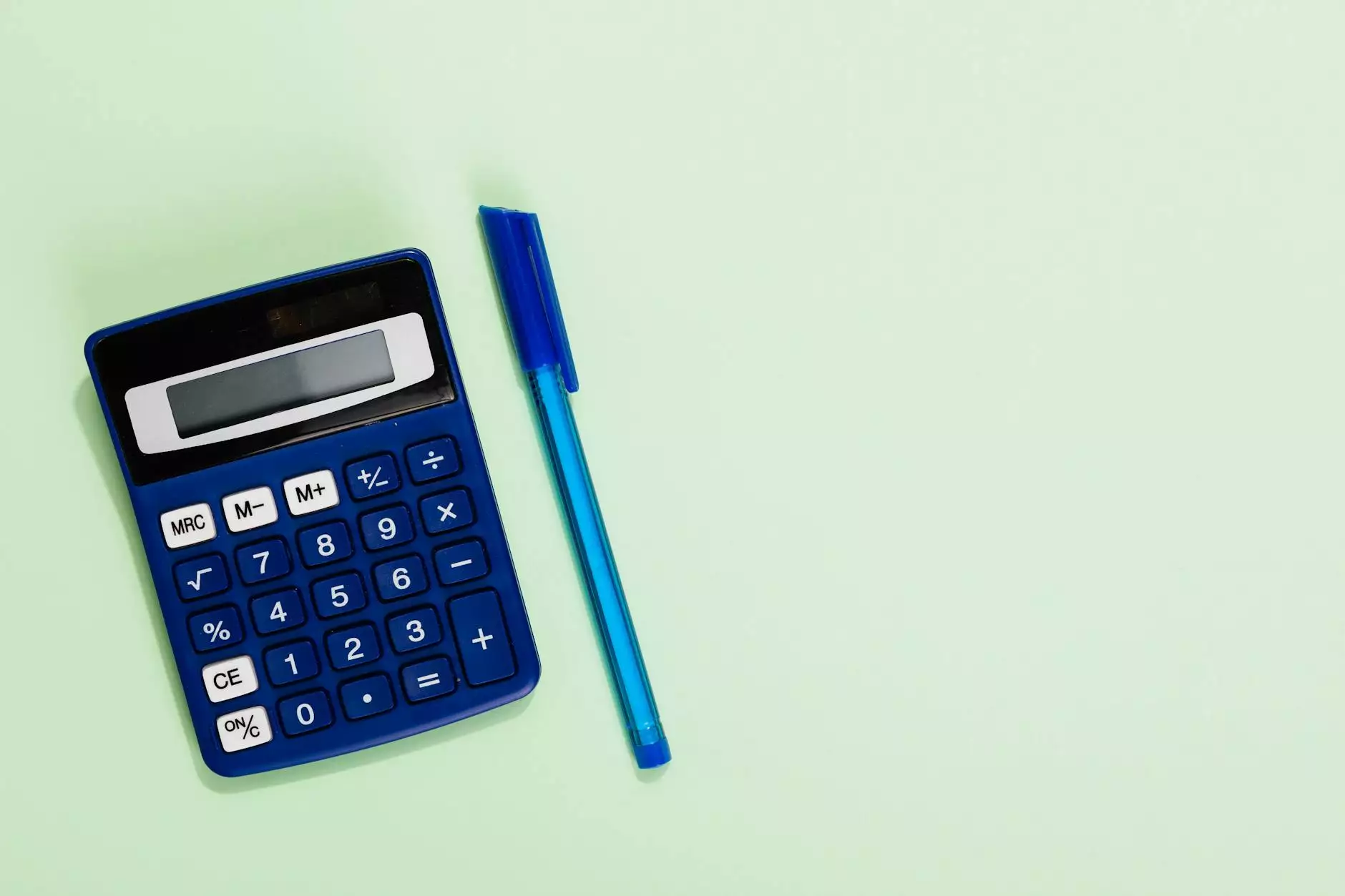Essential Personal Budgeting Tips for Financial Success

In today's fast-paced world, managing your finances effectively is more crucial than ever. Whether you're striving to save for a vacation, pay off debt, or just want to feel more in control of your spending, these personal budgeting tips will put you on the right path to financial empowerment.
Understanding the Importance of Personal Budgeting
Before diving into specific strategies, it's essential to understand what personal budgeting is and why it matters. Personal budgeting is the practice of tracking your income and expenses to ensure you stay within your financial means while planning for future goals. Effective budgeting can lead to:
- Improved financial health: Understanding where your money goes helps you manage your cash flow more effectively.
- Debt reduction: A clear budget can help you allocate funds towards paying off outstanding debts.
- Increased savings: With a budget in place, you're more likely to set aside money for savings or emergency funds.
- Goal achievement: Whether it's buying a home, funding education, or planning for retirement, budgeting helps you outline a plan to reach your financial objectives.
Creating Your Personal Budget
The journey to effective budgeting begins with creating your own personal budget. Here’s how you can do it step by step:
Step 1: Determine Your Income
The first step in preparing a budget is to calculate your total monthly income. This includes:
- Your salary (after taxes)
- Bonus income
- Side hustle earnings
- Investment income
- Any other sources of income
Tip: Make sure to include only stable and predictable income sources to maintain an accurate view.
Step 2: Track Your Expenses
List all your fixed and variable expenses to understand where your money is going. Fixed expenses can include:
- Rent or mortgage payments
- Insurance premiums
- Subscription services
Variable expenses might encompass:
- Groceries
- Dining out
- Entertainment
- Gas and transportation
Step 3: Set Financial Goals
Personal financial goals can be categorized into short-term, medium-term, and long-term goals, such as:
- Short-term: Saving for a vacation in one year.
- Medium-term: Building an emergency fund within two to five years.
- Long-term: Planning for retirement or purchasing a home.
Implementing Your Budget
Once you've established your budget, the real work begins — adhering to your budget. Here are some effective personal budgeting tips to help you stick to your plan:
1. Use the 50/30/20 Rule
This popular budgeting method suggests allocating:
- 50% of your income for needs (essentials such as housing, food, utilities)
- 30% for wants (non-essential spending like entertainment and travel)
- 20% for savings and debt repayment
This rule simplifies budgeting, making it easier to prioritize spending while ensuring savings aren’t overlooked.
2. Automate Your Finances
Automation is a powerful way to enforce your budget without constant effort. Set up automatic transfers to your savings account, investment accounts, or debt repayment plans. This way, you will pay yourself first and won’t be tempted to spend that money.
3. Review and Adjust Regularly
Your budget is not a static document; it should evolve. Schedule monthly reviews of your budget to check your progress. Life circumstances can change, resulting in needing to adjust your budget. For instance, receiving a salary increase, changing jobs, or experiencing unexpected expenses should all prompt a review.
Additional Personal Budgeting Tips for Success
In addition to the foundational strategies mentioned above, consider following these supplementary tips to refine your budgeting process:
1. Use Budgeting Tools and Apps
Technology today offers various tools to simplify personal budgeting. Applications like:
- Mint: Tracks expenses and bills to help budget effectively.
- YNAB (You Need a Budget): A popular tool focused on breaking the paycheck-to-paycheck cycle.
- EveryDollar: A simple, intuitive budgeting app.
These tools can assist you in visualizing your financial data and staying committed to your goals.
2. Differentiate Between Needs and Wants
One of the most important personal budgeting tips is to understand the difference between needs and wants. When considering a purchase, ask yourself:
- Do I truly need this?
- Will this purchase improve my quality of life?
Being intentional about spending can prevent impulse purchases and help maintain balance in your budget.
3. Establish an Emergency Fund
A robust emergency fund can safeguard you against unexpected expenses and emergencies, such as medical bills or vehicle repairs. Aim for three to six months' worth of living expenses in this fund to create a financial safety net. This fund should be easily accessible, such as in a high-yield savings account.
4. Engage in Mindful Spending
Practice mindfulness in your spending by being conscious of your financial decisions. This includes:
- Shopping with a list to prevent overspending.
- Waiting 24-hours before making significant purchases, allowing time to evaluate whether it's a necessity.
- Reading reviews and comparing prices before purchasing items.
Keeping Motivated
Staying motivated on your budgeting journey can be challenging, but having a strategy helps. Here are several ways to maintain focus on your budgeting goals:
1. Celebrate Small Victories
As you hit budgeting milestones, such as repaying a credit card or reaching a savings target, celebrate these achievements. This can keep you motivated and committed to sticking with your budget.
2. Seek Support
Engage family or friends who share similar financial goals. A support system can help keep accountability while providing encouragement and sharing tips that can enhance your budgeting strategy.
3. Educate Yourself
Continuously educate yourself about personal finance, budgeting strategies, and investing. Resources like financial podcasts, books, and online courses can provide valuable insights and keep you inspired on your journey to financial wellness.
Conclusion
Mastering your finances through effective budgeting is indeed a fulfilling and empowering journey. By utilizing these personal budgeting tips, you will not only improve your financial well-being but also instill healthy financial habits that can benefit you for life.
Remember, budgeting is not merely about restricting your spending; rather, it's about making your money work for you, achieving your goals, and paving the way toward a prosperous future.









